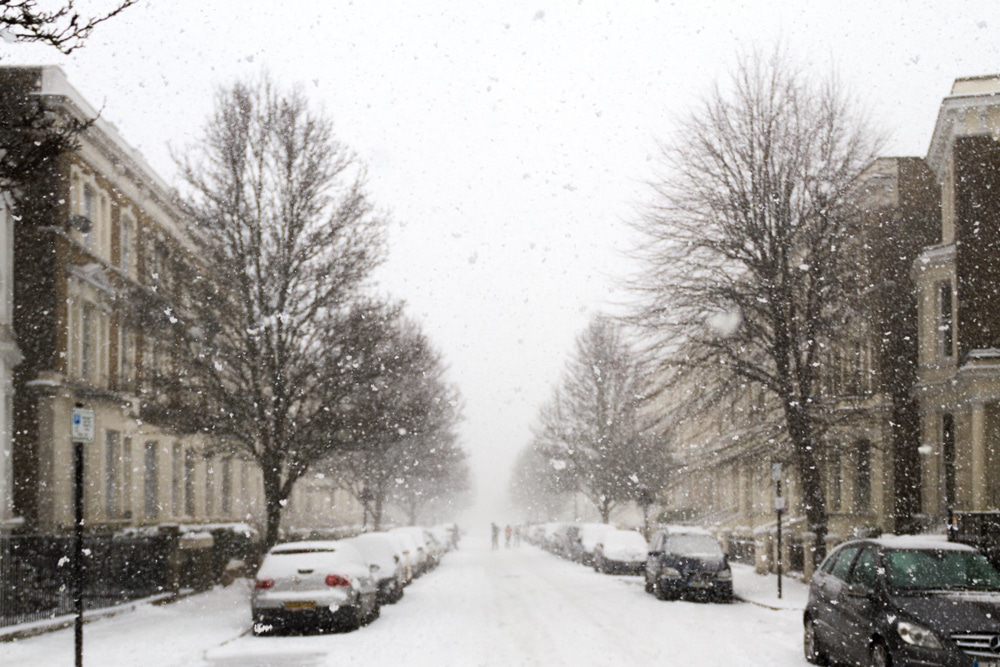
Snow and ice hit bring parts of the UK to a stand still every year. Blizzards and extreme winter conditions essentially makes it difficult to get to work, at times, even impossible. This is why, it is important to be aware of your rights when it comes to going to work in extreme weather. So what are the consequences if you refuse to attend work due to snow?
If you decide to inform your boss that you are not coming to work because the conditions may be too dangerous, the employer is not legally bound to pay you for your missed day at work. Employers have a right to expect their employers to be at work, as and when, they are required and hence do not have a legal obligation to pay an employee if they fails to do so.
Can you take the day off due to bad weather?
It is important to check the company handbook or your contract to see what are the policies and rules of your employer. Your boss may expect you to work if it is safe and reasonable to travel. ACAS however recommends on taking a flexible approach in that is not the case. The employees can be allowed to work from home, come later than usual times or another shift or allowed to work flexible hours. The employees can also be allowed to swap shifts or work overtime for lost hours. One exception would be if a company provides transport and that is cancelled. It is also important that if the employee cannot reach work due to extreme weather conditions, they should inform their employer as soon as possible.
In some cases, depending on your employer, on giving a proper notice, the employee may be allowed to take a paid leave. It is also vital that employers do not force the employee to travel to work in unfair weather conditions.
Do you get paid if you can’t get to work?
According to ACAS guidelines, employees are not legally entitled to working time if they have missed work due to a weather condition. This rule does not however apply if the company cancels transport when the employee was willing, available and ready to come to work. In that case, the employee will be entitled to a paid leave. The employer however can choose to make informal arrangements.
What if the company closes?
If a bad weather, such as snow leads to company closure and the employees don’t usually work from home, then the employees are legally allowed to have paid leave and employers cannot deduct their pays. However, the employer may ask the employees to go to another workplace or work from home for the time being.
What if schools are closed?
If the situation involves a dependant, employees can take unpaid leave. These situations include schools closing down, making caring arrangements for disabled relatives or a partner being seriously injured in bad weather. Unless specifically mentioned in employment contract, the time taken off work is unpaid.
How cold does it have to be to not work?
There is no pre-decided legal norm for the same but the temperature must be safe for people to perform their work responsibilities. While there are no minimum or maximum temperature guidelines, the employer must offer a reasonable temperature at workplace. An ideal temperature in offices should be at least 13 or 16 degrees Celsius if their role involves physical work. ACAS recommends that in a bad weather, employers should be flexible on dress codes and allow people to wear warmer clothes or take some extra break to make hot drinks like tea or coffee.
Our Employment Law Solicitors can assist with all types of claims. Naturally, we pride ourselves on providing the best possible service to the highest standards, we can provide free employment law advice on all problems.
Call us on 020 3923 4777 or 020 3923 4777
Tom Street qualified as a solicitor in 2003 and has over 20 years experience in employment and litigation law. He studied law at the University of Manchester before undertaking the legal practice course at the College of Law in Guildford, going on to complete his legal training at a firm in Chancery Lane, London. Once fully qualified, he moved to a niche litigation practice in the City of London.
In 2010, Tom set up his own legal practice, Tom Street & Co Solicitors and as part of this, in accordance with his strongly held objective to provide everyone with an easy pathway to justice he established the online portals Do I Have A Case? and Tribunal Claim. These websites are trading names of Tom Street & Co Solicitors.

